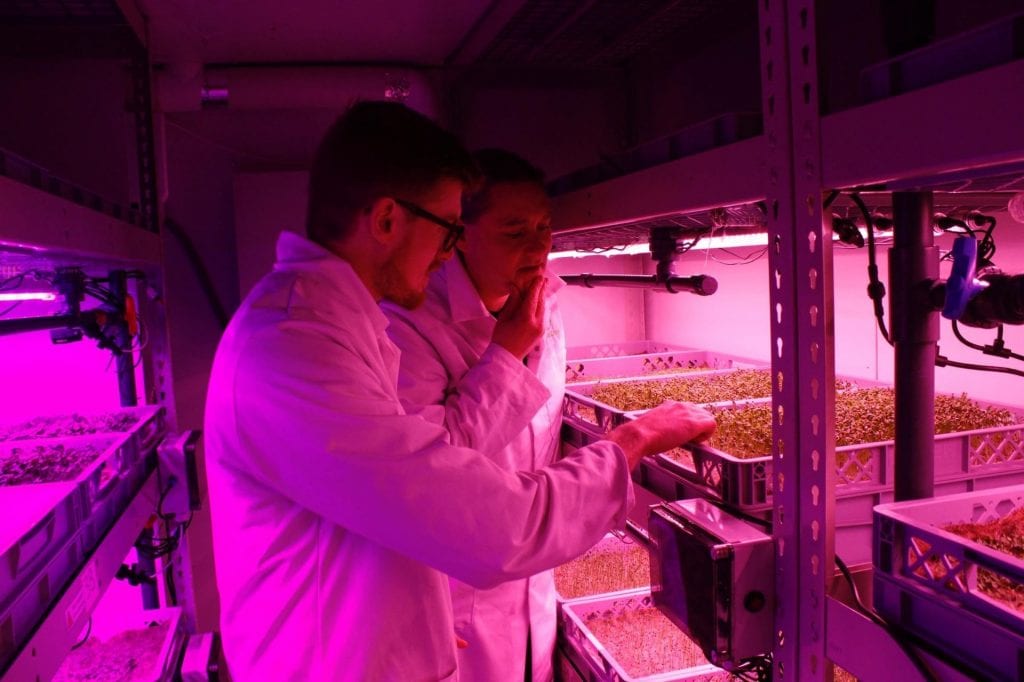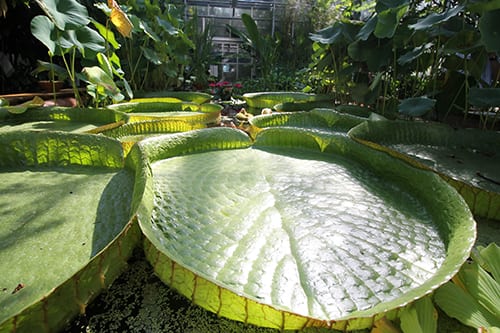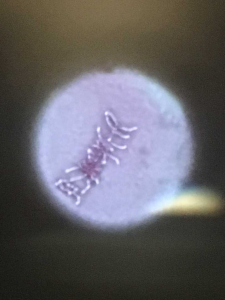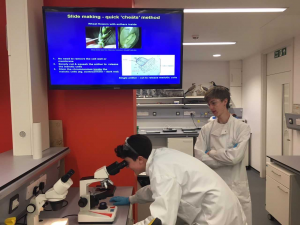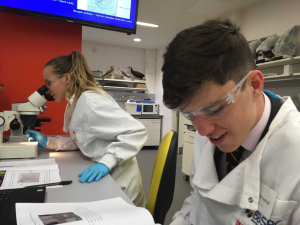Dr Antony Dodd, whose internationally leading research at the University of Bristol focuses on circadian rhythms, plant physiology and environmental signalling, has been awarded a Royal Society Industry Fellowship to contribute to product development at the Bristol-based start-up company LettUs Grow.
LettUs Grow was co-founded by University of Bristol alumni Charlie Guy, Ben Crowther and Jack Farmer in 2015. Since then, they have become rising stars in the world of green technology, winning multiple awards for their application of innovative technology to creating more sustainable food production. They have developed novel aeroponic technologies for application in greenhouses and “vertical farms,” which are systems for crop production using stacked indoor systems. Vertical farms reduce water use by up to 95% compared to traditional growing methods, significantly boost yields outside traditional growing seasons and allow crop production in densely populated urban areas.
Dr Dodd will be working closely with LettUs Grow to apply fundamental plant sciences to the advancement of their vertical agriculture technologies. This will involve combining Dr Dodd’s expertise in circadian rhythms and plant physiology with the work of LettUs Grow’s biologists and engineers to design optimal aeroponic cultivation recipes. This will enable LettUs Grow to optimise their systems for individual crop species and consistently increase yields.
Dr Dodd said, “This represents an outstanding opportunity to apply fundamental plant sciences to the development of the next generation of technologies for food production by vertical agriculture.”
Jack Farmer said, “The alignment of plant circadian rhythms with lighting photoperiod represents a real opportunity to improve yields, whilst reducing the cost of production. We’re very excited to work with Dr Antony Dodd to optimise a wide range of indoor farming techniques.”
The year-long Fellowship provides funds to allow Dr Dodd to dedicate time to working closely with LettUs Grow.
Written by Jess Bowers-Martin (year 3 Biology)


